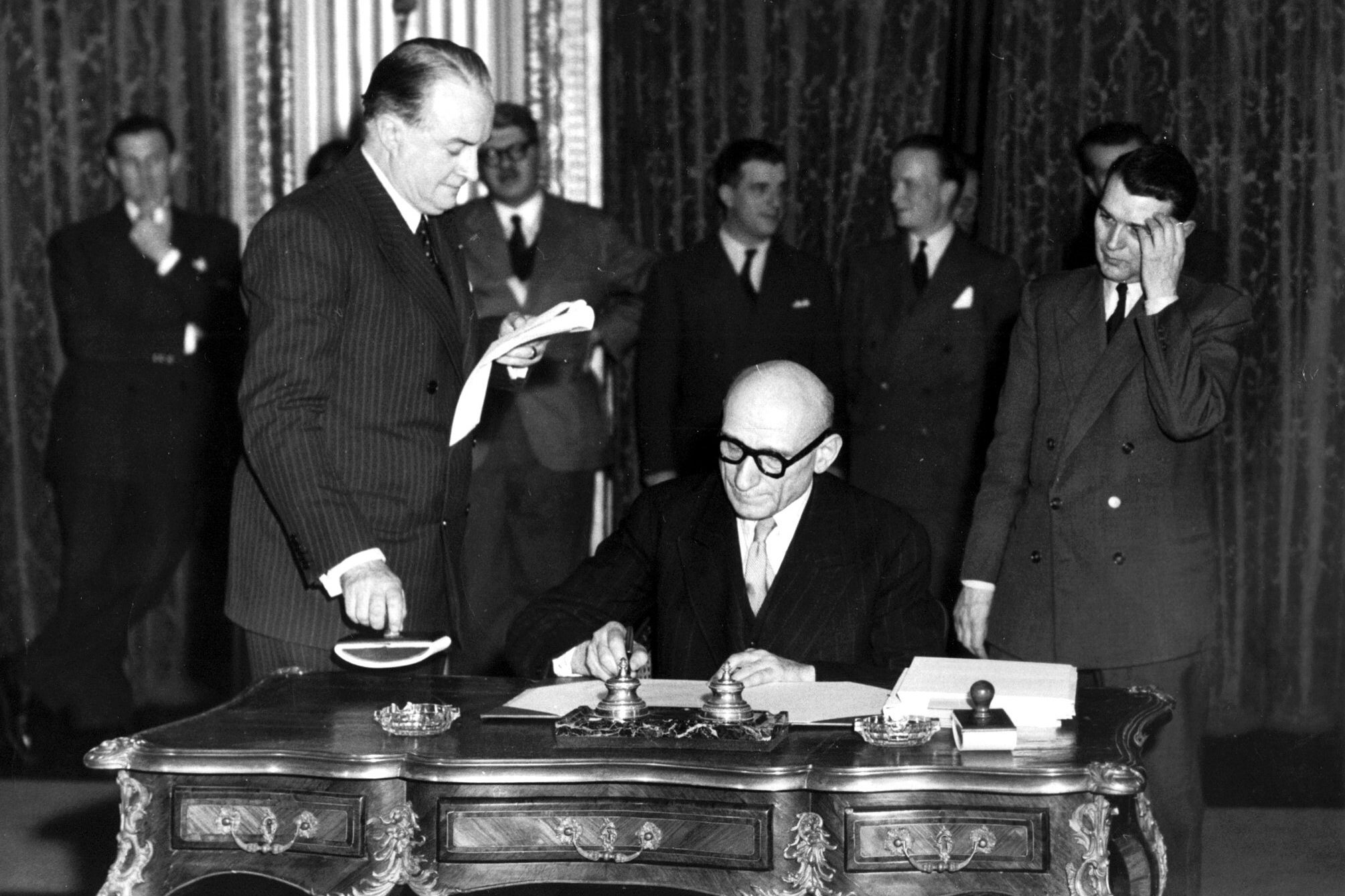An architect of European unity moves ahead on sainthood path
A French statesman whose efforts helped pave the way for what eventually became the European Union has moved ahead on the Catholic church's path toward possible sainthood

Your support helps us to tell the story
From reproductive rights to climate change to Big Tech, The Independent is on the ground when the story is developing. Whether it's investigating the financials of Elon Musk's pro-Trump PAC or producing our latest documentary, 'The A Word', which shines a light on the American women fighting for reproductive rights, we know how important it is to parse out the facts from the messaging.
At such a critical moment in US history, we need reporters on the ground. Your donation allows us to keep sending journalists to speak to both sides of the story.
The Independent is trusted by Americans across the entire political spectrum. And unlike many other quality news outlets, we choose not to lock Americans out of our reporting and analysis with paywalls. We believe quality journalism should be available to everyone, paid for by those who can afford it.
Your support makes all the difference.Robert Schuman, a French statesman who paved the way for the bloc that eventually evolved into European Union has moved ahead on the Catholic church’s path toward possible sainthood.
The Vatican said Pope Francis on Saturday approved a decree declaring the “heroic virtues″ of Schuman, a former prime minister, finance minister and foreign minister for France after World War II. In 1950, as foreign minister, he developed a plan to promote European economic unity in hopes of furthering peace.
Schuman died in 1963 after serving as the first president of the forerunner of the European Parliament.
The pope's decision means Schuman can be called ”venerable” by the Catholic faithful. It is one of several steps in a usually long process that can result in sainthood.
The European Commission website describes Schuman as “one of the founding fathers of European unity,'' hailing him as ”the architect of the project of European integration."
The Vatican described Schuman as a man of Catholic faith.
“Behind the action of the public man, there was the interiority of the man who lived the sacraments, who, when he could, would take to an abbey, who would reflect on the sacred Word before finding the shape of his political words,” it said.
Born in Luxembourg in 1886 to a Luxembourg mother and a French father in a area annexed by Germany he was a German citizen at birth. After World War I, when the area was returned to France, Schuman became a French citizen.
A lawyer and a member of the French National Assembly, Schuman was arrested in 1940 by the German Gestapo after the German occupation of France, but escaped in 1942. The European Commission biography of him notes his activity in the French Resistance.
After the war, Schuman served as finance minister, prime minister, foreign minister and justice minister.
On May 9, 1950, Schuman gave a speech pitching cooperation between European nations to help converge their economic interests. Such cooperation, especially involving France and Germany, he argued, would make another war on the continent both unthinkable and impossible.
His plan helped see the realization of the 1952 European Coal and Steel Community, a forerunner of the Common Market formed in 1958.
Last year, noting the 70th anniversary of his speech, which became known as the Schuman Declaration, Francis praised the statesman's legacy. Francis said from that point on there came “a long period of stability and peace which we benefit from today.”